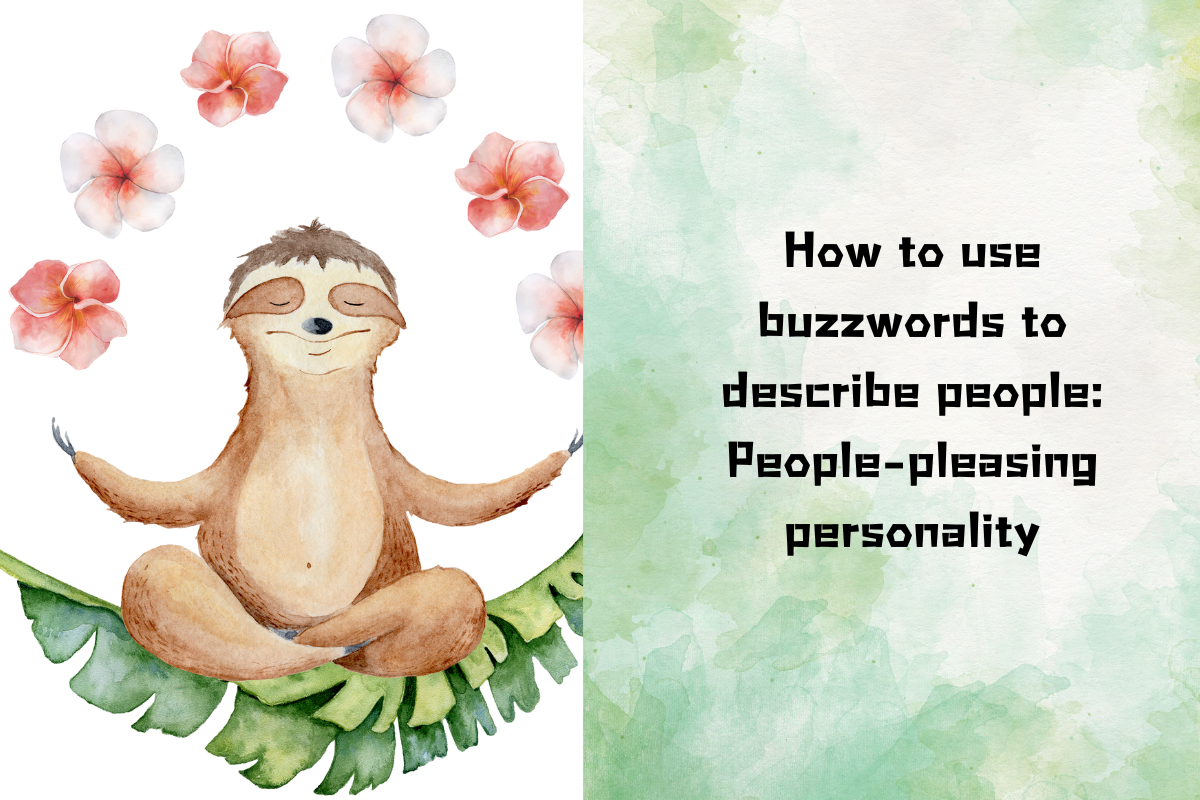How to Use Buzzwords to Describe People
In everyday life and the workplace, we often encounter a variety of individuals, each with their own unique personalities and traits. Sometimes, we use buzzwords to describe certain behaviors and characteristics of people. Today, we'll discuss two common personality types: people-pleasers and avoidants, and how to use buzzwords to describe them.

People-Pleasing Personality-讨好型人格 (tǎo hǎo xíng rén gé)
A people-pleasing personality refers to those who tend to cater to others, seeking to win the approval and acceptance of others. They typically exhibit the following traits:
Yes-Man/Woman: This term is often used to describe individuals who frequently say "yes" to accommodate others' opinions in order to gain their favor.
Social Butterfly: This term describes those who enjoy attending social events, seeking recognition and affection through social interactions.
Pushover: These individuals often sacrifice 牺牲 (xī shēng) their own interests and needs to meet the demands of others.
牺牲 (xī shēng), verb, sacrifice
Examples:
- She made a great sacrifice for her family's happiness.
她为了家人的幸福做出了巨大的牺牲。
tā wèile jiārén de xìngfú zuòchūle jùdà de xīshēng. - Making sacrifices for your dreams is essential for success.
为了梦想做出牺牲对于成功至关重要。
wèile mèngxiǎng zuòchū xīshēng duìyú chénggōng zhìguān zhòngyào.

Avoidant Personality-回避型人格(huí bì xíng rén gé)
Avoidant personality refers to those who tend to avoid social situations and interpersonal interactions, fearing judgment and rejection from others. They typically exhibit the following traits:
- Homebody: This term is used to describe those who prefer staying at home and dislike 不喜欢 (bù xǐ huān) socializing outside.
- Avoider: These individuals tend to avoid communication with others, especially when faced with pressure and discomfort.
不喜欢 (bù xǐ huān), verb, dislike
Examples:
- I dislike eating bitter melon.
我不喜欢吃苦瓜。
wǒ bù xǐhuān chī kǔguā - She dislikes rainy days.
她不喜欢下雨天。
tā bù xǐhuān xiàyǔ tiān
How to Use These Buzzwords to Describe Personality Types
Understanding the meanings of these buzzwords can help us better understand the behaviors and characteristics of others. However, when using these words, it's important to consider the following:
- Respect Others: While these words can help us accurately describe others, we should also respect each person's uniqueness and individual choices.
- Observe Details: Observe a person's behavior to determine which personality type they may belong to.
Key Sentences:
- I feel like I have an avoidant personality.
我觉得我有回避型人格。
Wǒ juédé wǒ yǒu huíbì xíngrén gé. - I always agree with others' words. I think I have a people-pleasing personality.
我总是附和别人的话。我觉得我有讨好型人格。
Wǒ zǒngshì fùhé biérén dehuà. Wǒ juédé wǒ yǒu tǎohǎo xíngrén gé. - My colleague always avoids joining us for meals. They might have an avoidant personality.
我的同事总是不和我们聚餐,可能有回避型人格。
Wǒ de tóngshì zǒngshì bù hé wǒmen jùcān, kěnéng yǒu huíbì xíngrén gé.